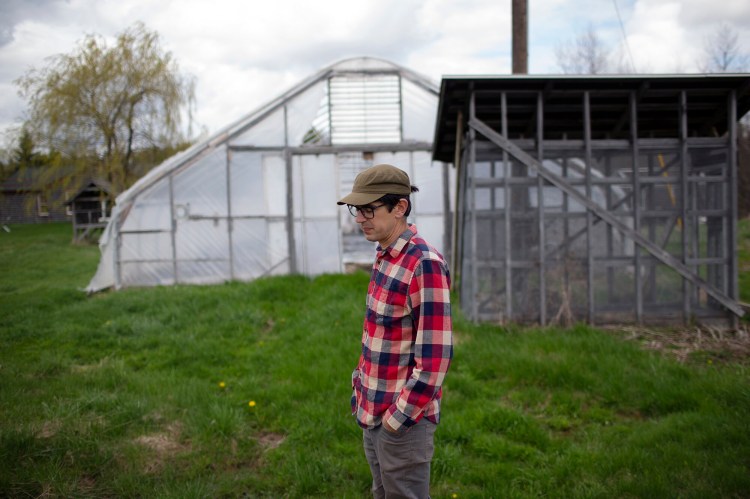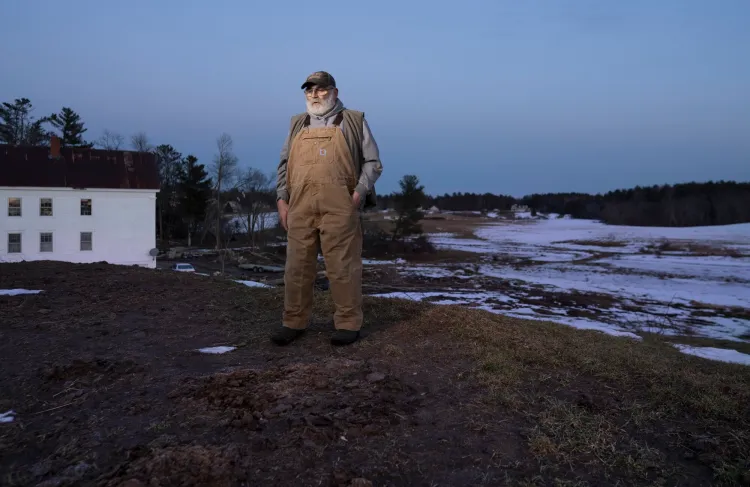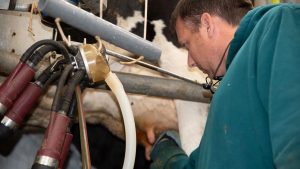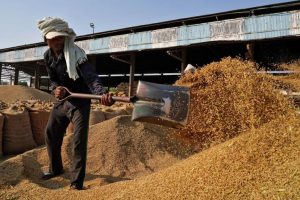
Maine so far has focused on farms that were contaminated through the spreading of wastewater sludge.
Proposed state regulations would allow any commercial farm with elevated levels of harmful forever chemicals – regardless of the source of the contamination – to apply for financial assistance from Maine’s first-in-the-country PFAS relief fund.
In the past, Maine has focused its time and money on PFAS contamination caused by a now-defunct state Department of Environmental Protection program that used wastewater sludge as fertilizer on hundreds of farms across Maine dating to the 1970s.
The new rules would allow commercial farms tainted by other sources of perfluoroalkyl and polyfluoroalkyl substances to tap into the state’s $60 million PFAS Fund, including the PFAS-laced foam used by firefighters, airports and the military to douse high-intensity fires.
“The Department of Agriculture, Conservation and Forestry is concerned with the health and safety of food and commerce,” Fund Director Beth Valentine said. “If a farm is impacted by PFAS, we want to know and we want to help find a path forward, regardless of the source.”
PFAS are a large group of synthetic, potentially harmful chemicals used in household products and industry to protect goods from stains, water and corrosion. They are called forever chemicals because some don’t degrade naturally and can linger for decades in the environment.
Certain medical conditions, like kidney, breast and testicular cancer, liver and thyroid disease, pregnancy-induced hypertension and ulcerative colitis, are more likely to develop in persons exposed to PFAS than in the general population. This list is expected to grow as scientists learn more.
The state is investigating about 1,100 sites where state records show sludge spreading was permitted, as well as surrounding properties. But sludge-related PFAS can spread farther afield through groundwater or the sale of PFAS-contaminated hay or silage feed to a far-flung farm.
Some farmers worry the PFAS Fund is already too small to help all the Maine farmers impacted by the state sludge-spreading program. Any expansion of the program, like allowing farmers to apply for two years of lost wages instead of just one, will only deplete the fund that much faster, they say.
“We’re going to run out of money before everybody is helped,” said lobbyist Julie Ann Smith of Maine Farmers Coalition, a new group of Maine’s largest farm businesses. “We are going to run out of money before everybody is helped.”

Adam Nordell visits the family farm in Unity in May, he used to operate with his partner, but after testing for staggeringly high levels of PFAS, he had to shut it down. Derek Davis/Staff Photographer
But the drafters of the proposed PFAS Fund rules said running out of money isn’t their top concern now.
“The entire point of the fund is to make sure, whenever possible, we can keep farmers farming,” said Sen. Stacy Brenner, D-Scarborough, a farmer who is on the PFAS Fund Advisory Committee. “The fund is a safety net to provide support when we find contamination.”
The committee could always seek reimbursement from the U.S. Department of Defense, an airport or a fire department if the PFAS contamination of a farm it helps can be traced to another responsible party, Valentine said. But the fund is not actively seeking out such reimbursement, she said.
HEARINGS ON DEC. 18
Hearings on the proposed rules will be held from 1-4 p.m. on Dec. 18 at the Deering Building at 90 Blossom Lane, Augusta, and the other from 10 a.m. to 1 p.m. in the Somerset Room at the Augusta Civic Center during the Maine Agricultural Trades Show.
Once the rules are finalized, farmers with verifiable test results can seek reimbursement for time spent managing the crisis, lost wages, farm infrastructure changes and loan guarantees. The fund also can be used to buy contaminated farms if the owner wants to sell.
Commercial farmers who apply for management, lost wages, infrastructure and loan assistance will be treated the same regardless of the source of contamination. Farms that participated in the state sludge-spreading program will be prioritized when it comes to receiving farm buyouts.
Homesteaders who grow food for personal consumption are not eligible to apply for any PFAS assistance, regardless of the farm size or the contamination source. The state law that created the fund specifically identifies commercial farmers as fund beneficiaries.
Blood serum testing and monitoring, and mental health assistance offered by the fund will be available only to those who owned, lived or worked on farms involved in the state sludge spreading program or whose elevated PFAS levels can be directly tied to one of these farms.
The state finalized in July its plan on how to spend $60 million in relief funds, plus another $10 million in likely federal funds, to help Maine farmers whose lives have been upended by the toxic chemicals left behind by the sludge-spreading program.























